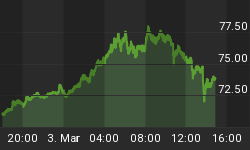Is the German economy really headed into an upswing this year, as most analysts and commentators expect? Data releases over the next few days should help to clarify the picture.
There is little doubt that exports continue to support the German economy. Preliminary data show a 6.2% increase in exports in 2005 and a 4.0% increase in capital investment (the strongest increase in five years), while industrial output in October and November were clearly on the up. The nation's main industry associations are downright optimistic about the outlook for 2006, with both the DIHK chambers of industry and the BDI industry federation cheerfully forecasting GDP growth of close to 2.0% this year. The latest ZEW investor sentiment survey (released last week) seemed to bear this out, with the expectations indicator for January jumping 9.4 points to 71.0, and the current business conditions indicator reaching its highest level since June 2001 at -31.6.

What is not clear is what is happening to private consumption, which accounts for nearly two-thirds of the economy but which stagnated for a fourth year in a row in 2005. In its monthly report released today, the Bundesbank confirmed earlier assessments that the economy slowed markedly in the fourth quarter last year as consumer spending remained weak.
Unemployment has been headed downward, but to date not fast enough to make households feel more comfortable about spending. Whether sentiment is indeed about to shift, as some analysts expect, will become clearer with the release of the GfK consumer sentiment survey for January, due on the 27th of this month. Further light should be shed with the December unemployment data (on the 31st) and the more detailed December retail sales data that are due out sometime next week. It should be noted that consumer spending may also get a boost this year from the government's plans to hike VAT (the consumption tax) by a hefty three percentage points in 2007 (a plan that bodes ill for the 2007 growth forecast).
Germany's near-term outlook has an impact on the policy deliberations of the European Central Bank. An improvement in German consumer sentiment and hence in overall demand and growth in the Euro-zone's largest economy will increase market expectations of another ECB rate hike (in addition to the 25bp tightening generally expected in March).

The Belgian central bank's business confidence index - a leading indicator for the Euro-zone as a whole, thanks to tiny Belgium's strong trade ties with its neighbors - is due out tomorrow. The December index recovered strongly to its highest level in over a year (-0.4). Back in Germany, the January release of the closely-watched Ifo business climate indicator is due out on Wednesday (December's hit a five-year high of 99.6). If these two indicators confirm the improvements seen in December, German and Euro-zone growth forecasts will be tweaked upward again, and expectations of further ECB rate hikes will firm.
















